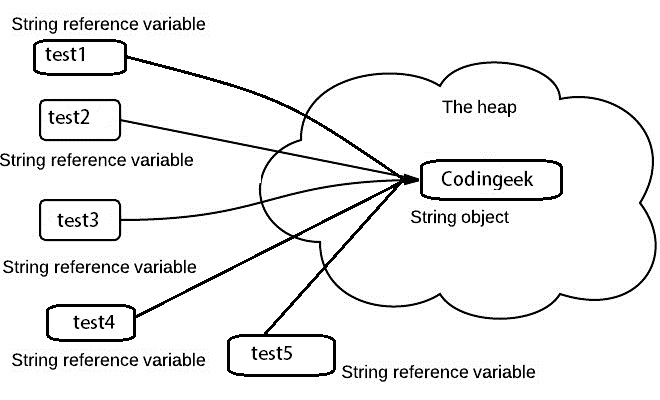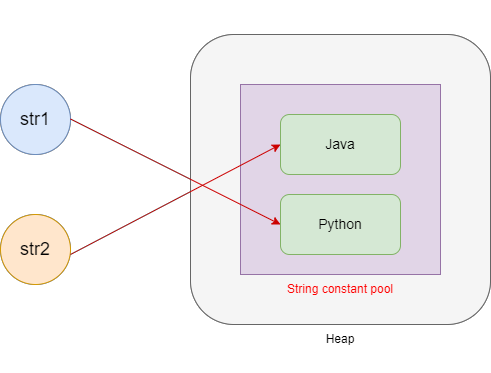What Is Immutable Strings and Just How It Works
In the world of programming, comprehending the idea of immutable strings is paramount for creating safe and durable applications. Immutable strings refer to strings that can not be modified after they are produced, making certain data integrity and predictability within the code. This basic concept plays a critical function in various shows languages and supplies an one-of-a-kind strategy to taking care of information. By checking out the intricacies of just how immutable strings operate, one can discover a globe of benefits and opportunities that can raise the high quality and effectiveness of software growth.
The Essentials of Unalterable Strings
Unalterable strings, as an essential concept in programs, are character sequences that can not be transformed as soon as they are created. This suggests that as soon as a string is designated a worth, that value can not be altered. In languages like Python and Java, strings are unalterable items, leading to various effects in terms of memory management and information stability.
Among the crucial advantages of unalterable strings is that they provide a feeling of security in data manipulation. Given that the web content of an immutable string can not be customized, it ensures that the initial information remains undamaged, minimizing the risk of unexpected modifications throughout program implementation (Why are strings immutable in Java?). This building additionally simplifies debugging procedures, as developers can trust that once a string is defined, its value will not be accidentally altered
When a new string is created based on an existing one, instead than changing the original string, the new value is stored individually. In general, understanding the essentials of unalterable strings is important for grasping programming ideas and maximizing code effectiveness.
Advantages of Unalterable Strings
Building upon the protection and performance benefits of immutable strings, their advantages include improving code reliability and simplifying concurrent shows jobs. By being immutable, strings can not be customized after production, which removes the threat of unexpected changes in the information they save. This integral immutability makes certain that as soon as a string is developed, its value remains consistent throughout the program's execution, minimizing the possibilities of insects triggered by unexpected alterations.
Furthermore, unalterable strings add to code integrity by making it much easier to reason regarding the state of a program. Considering that strings can not be changed, designers can rely on that a string will always hold the same worth, simplifying debugging and upkeep initiatives. This predictability causes much more secure and reliable codebases.

Implementation in Programs Languages
Within various programs languages, the unification of immutable strings is a basic element that impacts exactly how information is dealt with and adjusted within code frameworks. The application of unalterable strings differs throughout different shows languages, with each language providing its very own systems to sustain this idea.

In comparison, languages like C and C++ do not have integrated assistance for unalterable strings. Programmers in these languages have to by hand carry out immutability by applying regulations within their code to prevent straight adjustments to string things.
Ideal Practices for Working With Immutable Strings
When taking care of immutable strings in shows languages like Java and Python, sticking to ideal practices ensures protected and efficient data adjustment. One of the essential finest techniques is to use StringBuilder or StringBuffer instead of straight controling strings, particularly when managing extensive concatenation operations. These courses supply mutable alternatives for string control, assisting to avoid unnecessary memory allotments and improving efficiency.
In addition, when working with sensitive information such as passwords or API keys, it is important to avoid storing them as ordinary text in unalterable strings. Using safe storage devices like char ranges or specialized libraries for dealing with delicate information assists reduce safety threats connected with immutable strings.
Real-world Applications and Instances
Exploring functional applications of immutable strings in different sectors exposes their official website significant impact on information honesty and system dependability. In the medical care industry, unalterable strings play an essential duty in making sure the protection and discretion of person data. By stopping unauthorized alterations to sensitive information such as clinical records and prescriptions, unalterable strings assist maintain conformity with rigorous privacy laws like HIPAA.
Financial organizations likewise take advantage of the unalterable nature of strings to improve the safety of consumer data and purchase documents. Unalterable strings assist prevent fraud and unauthorized changes to monetary information, offering a durable protection against cyber threats and making sure the depend on and self-confidence of clients.
Conclusion
Best practices for working with immutable strings include staying clear of find more information straight modifications and utilizing methods that return new string items. Real-world applications of unalterable strings include data file encryption, caching, and string control jobs.
Unalterable strings refer to strings that can not be modified after they are created, guaranteeing data honesty and predictability within the code. When a brand-new string is developed based on an existing one, instead than changing the initial string, the brand-new worth is saved individually.In languages like Java and Python, strings are unalterable by default, indicating that when a string item is produced, its worth can not be altered - Why are strings immutable in Java?. check my site Best methods for working with immutable strings include avoiding direct adjustments and utilizing approaches that return brand-new string things. Real-world applications of immutable strings include information encryption, caching, and string manipulation tasks
Comments on “Why Are Strings Immutable in Java? Comprehensive Overview for Beginners”